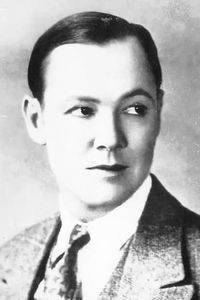Charles Edgar Ray, a multifaceted American creative force, entered the world on March 15, 1891, in Jacksonville, Illinois, a city nestled along the banks of the Sangamon River. As a young boy, he resided in Springfield, Illinois, where the early years of his life unfolded, laying the foundation for his future endeavors. Later, he would embark on a journey that would take him to the southwestern state of Arizona, where he would eventually make the fateful decision to relocate to the City of Angels, Los Angeles, to pursue his educational aspirations.
Ray's formative years in the entertainment industry commenced on the stage, laying the groundwork for a successful career that would span multiple mediums. However, it wasn't long before he made the transition to the silver screen, taking on the role of a film extra for the esteemed director Thomas H. Ince in December of 1912. This marked the beginning of a long and illustrious career in Hollywood, during which Ray would go on to appear in numerous bit parts and supporting roles, gradually honing his craft and building a reputation as a talented and versatile performer.
Ray's widespread acclaim and immense popularity skyrocketed after he took on a succession of film roles that typified him as a youthful, innocent, and wholesome individual, frequently embodying the archetype of a naive, rustic character, often found thwarting the schemes of cunning thieves or swindlers.
By the dawn of the 1920s, Ray had evolved into a highly coveted and in-demand actor, commanding a reported weekly salary of a substantial $11,000.
As the years went by, Ray's impressive acting career continued to flourish, with his reputation as a talented performer spreading far and wide. However, despite his immense success, Ray's relationship with Paramount Pictures began to fray. The studio's head, Adolph Zukor, had initially been instrumental in launching Ray's career, but by 1920, tensions between the two had reached a boiling point.
The main point of contention was a reported disagreement over Ray's salary. Despite his immense popularity and the significant revenue he was generating for the studio, Ray felt that his pay was not commensurate with his value to the company. He requested a substantial pay raise, but Zukor refused to budge.
The impasse proved to be the final straw in Ray's relationship with Paramount. He eventually decided to leave the studio, opting to pursue other opportunities that would allow him to capitalize on his immense talent and earning potential.
In his autobiography, Zukor later reflected on the circumstances surrounding Ray's departure from Paramount. He suggested that Ray's ego had become excessively inflated, and that he was "headed for trouble" unless he learned to temper his ambition with humility. Zukor's comments were likely intended to convey his disappointment and frustration with Ray's decision to leave, as well as his concern for the young actor's well-being.
Despite the acrimonious nature of his departure from Paramount, Ray's career continued to thrive in the years that followed. He went on to become one of the most beloved and respected actors of his generation, known for his versatility, range, and dedication to his craft.
Undeterred by the challenges he had faced, Ray took the initiative to establish his own production company, Charles Ray Productions, a bold move that showcased his entrepreneurial spirit and determination to succeed. With the financial backing of his fortune, he was able to purchase a state-of-the-art studio in the heart of Los Angeles, providing him with the perfect platform to bring his creative vision to life. As a multifaceted talent, Ray continued to push his boundaries, effortlessly transitioning between various film genres, from light-hearted comedies to emotionally charged dramas, solidifying his reputation as a versatile and accomplished actor, director, and producer.
Tragically, the life of Ray was prematurely terminated due to the devastating effects of a mouth and throat infection, a circumstance that ultimately led to his untimely demise on November 23, 1943, at Cedars of Lebanon Hospital in the vibrant city of Los Angeles.
Prior to his passing, Ray had been confined to the hospital for a period of six weeks, a duration that would ultimately prove to be insufficient in enabling him to recover from the infection that had taken hold of his body.
Noted American actor Charles Ray has been honored with a prestigious star on the iconic Hollywood Walk of Fame, situated at the prominent address of 6355 Hollywood Boulevard, a testament to his outstanding and enduring impact on the film industry.



































